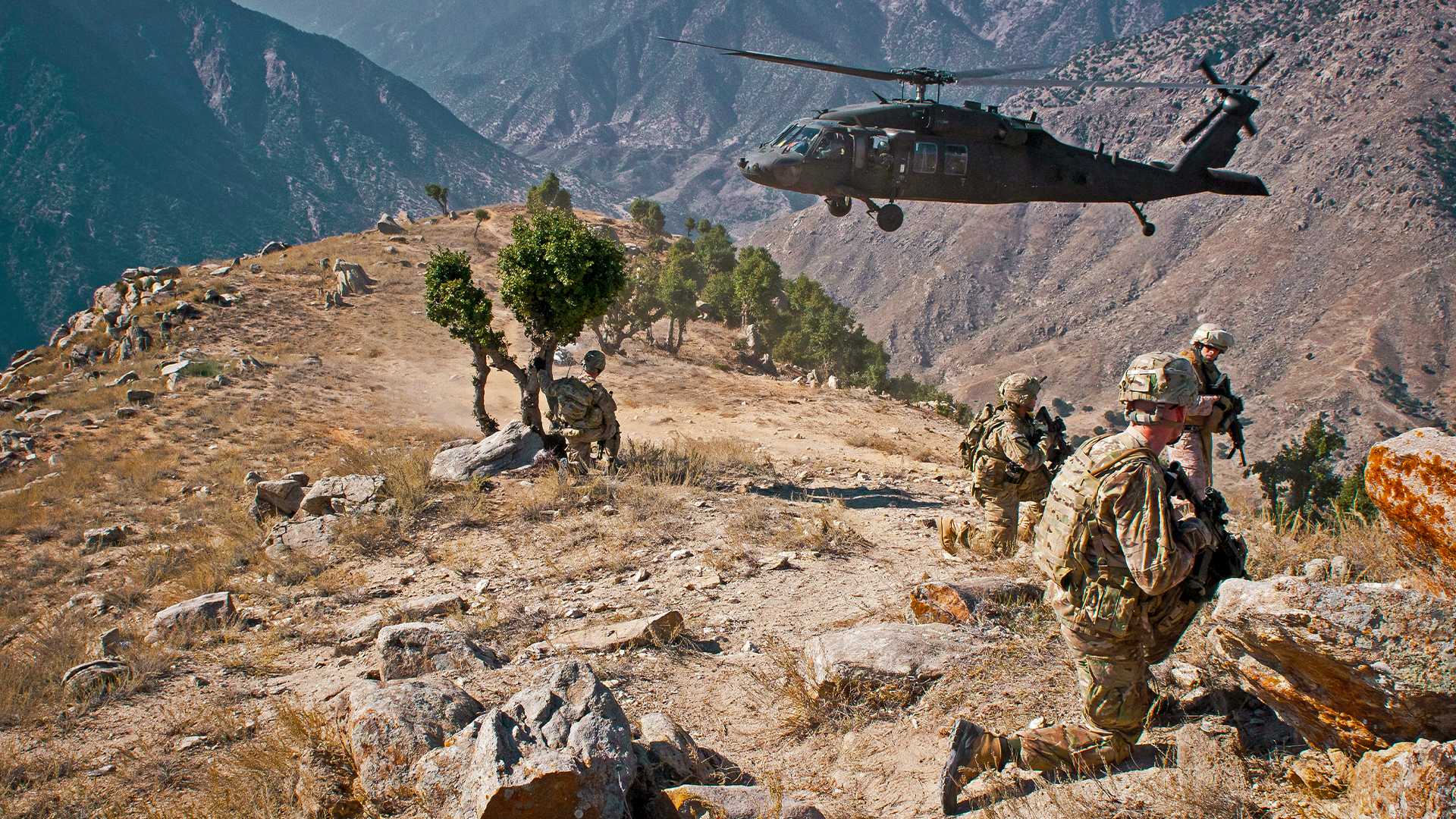

No matter who an American might vote for in the next election, or what political party they support, most consider the war in Afghanistan to have been a mistake.
A new national poll of over 1,000 U.S. adults found that two-thirds of Americans viewed the two decades spent in Afghanistan as unworthy of our time, blood, and resources. Those numbers are slightly more dour on the value of America’s longest war than a similar poll conducted in 2022.
Unlike many national polls where political loyalty often draws a stark dividing line between opinions, 65% of Democrats and 63% of Republicans said the war was “not worth fighting.” The Pearson Institute, the Associated Press, and the University of Chicago produced the poll.
“It was unwinnable from the beginning,” 78-year-old Martin Stefen, a Republican, told the Associated Press in a story released along with the poll results.
By a margin of two to one, Americans said the U.S. mostly failed in three of four major goals of the war: improving life for women and girls, eliminating Afghanistan as a safe harbor of terrorists, and developing a functioning government
Americans said the only goal achieved in the war, 46 percent to 25, was capturing or killing those responsible for the September 11, 2001 attacks.
Subscribe to Task & Purpose Today. Get the latest military news and culture in your inbox daily.
The poll’s results largely mirror a similar poll in 2021. The war in Afghanistan lasted just under 20 years, from October 2001 to a chaotic withdrawal that ended in August 2021 at Hamid Karzai International Airport. According to Pentagon numbers, 2,219 Americans died in Afghanistan during the war. Estimates vary widely, but at least 170,000 people, both civilians and combatants, are thought to have died during the war.
The poll asked if America should be more or less active in international affairs than it is now. Just 24% said the U.S. should be more active, 42% believed its current role is about right, and 33% said it should be less active.
“There is no clear public consensus on the role the U.S. should play in international affairs,” said David Sterrett, a senior research scientist with The AP-NORC Center.
The latest on Task & Purpose
- Navy fires captain of guided-missile cruiser USS Lake Erie
- The M10 Booker Combat Vehicle is definitely a tank, says Gen. Abrams
- Why Navy SEALs wear a trident and other facts about life as a frogman
- A-10 Warthogs arrive, more U.S. forces coming amid Israel-Gaza fighting
- Army plans to cut ‘unnecessary maintenance’ on vehicles and weapons